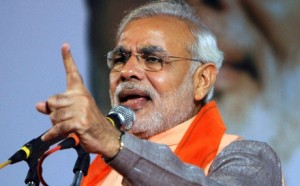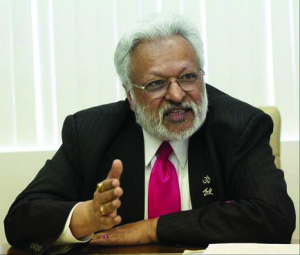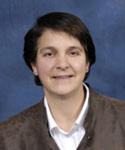
Dr. Vanila Singh
Vanila Singh Runs for Congress to Get US Visa for Human Rights Abuser
Religious – and foreign – politics have found their way into an American congressional race, but in a completely different manner to what we are used to. There are no Christian fundamentalists running for California’s congressional district 17, nobody pontificating against abortion or gay marriage or promising to bring prayer back to the classrooms. Instead, we’ll be treated to two competing understandings of Hinduism. For Democratic candidate Ro Khanna, Hinduism is one more aspect of his cultural identity which informs, rather than defines, his vision of the state as secular and pluralistic. For newcomer and potential spoiler Republican candidate Vanila Singh, on the other hand, Hinduism appears to be the cornerstone of her political identity. For the incumbent, embattled liberal Congressman Mike Honda, a man of indeterminate religious beliefs, Singh’s entrance in the race cannot come at a better time.
To the average American, even the average non-South Asian voter in CD 17, the name Narendra Modi may not immediately ring a bell. But this Gujarati politician and self-described Hindu nationalist is posed to become the next Prime Minister of India – and the main sideshow attraction in the CD17 race. Modi was Chief Minister of Gujarat during the violent 2002 riots which left over 2,000 Muslims dead, including children burnt alive. Modi’s administration has been accused by human rights organizations and researchers, not only of supporting the violence, but of planning it and then working diligently to derail any possibility of justice.

Narendra Modi
The Gujarati riots incensed human rights activists and supporters of religious freedom worldwide so when Modi announced, in 2005, that the would visit the United States for a conference, a coalition of activists and evangelicals formed to lobby the State Department to deny him a visa. They obtained the support of many members of Congress and were eventually successful. While the visa denial may seem like a small gesture, it incensed Modi and his supporters, who have since been working to get the US government to change its stand.
One of Modi’s biggest and richest backers in the US, is the Chicago-based Punjabi tycoon Shalabh ‘Shalli’ Kumar. Kumar has set out to get that visa for Modi and is not afraid to use his money – and that of other Indian nationalists in the US – to do it. He co-founded a Super PAC to recruit and fund Republican candidates that support a “pro-India platform”, the main element of which is helping Modi get a US visa. Kumar told India West that he approached Singh due to her volunteer work with the Hindu American Foundation (HAF), a pro-Modi group with Hindu-supremacist links. Singh apparently accepted, changed her voter registration from “declined to state” to Republican, and filed.
With 435 districts to chose from, one may wonder why Kumar chose to focus on a district that is not only heavily Democratic, but which already has a Hindu candidate. Not only does a Republican have no chance to get elected – the Republican candidate only got about 27% of the vote in the 2012 general election -, but Singh’s candidacy jeopardizes Ro Khanna’s chances of winning. While Khanna is not a supporter of Modi – he says he’s committed to both secularism and pluralism -, he has taken a hands-off approach on this matter and is willing to defer to the State Department’s decision. Honda, meanwhile, has lobbied the State Department to make sure that Modi is continued to be denied a visa. Surely, Kumar is doing himself no favors by helping Honda win this race.

Shalabh Kumar
Kumar’s strategy, however, seems to be more devious. He told India West that his Super-PAC would have backed Khanna if Khanna had been an independent “free of Pelosi’s whip” and willing to sign on to the “pro-India” agenda mentioned above. We can surmise that there were conversations on this issue between Kumar and Khanna that did not leave the former satisfied. Indeed, Khanna’s fundraising success along a broad donor base and his commitment to not accept contributions from PACs, makes him uniquely immune to the promises/threats of deep pocket special interests like Kumar. Clearly, another strategy was in order.
As Kumar told India West, “it’s a very challenging formula to take down Mike Honda without active Republican support.” Indeed, while CD 17 is a new district for Honda, he benefits from a considerable incumbent advantage, which Khanna can only overcome by receiving at least some Republican and moderate votes. A poll conducted last August by a pro-Honda group, had Honda receiving 49% of the total vote. That was less than the 57% a different poll gave him in March, but still considerably higher than the 15% Khanna had. While Khanna will have had a full year of campaigning under his belt by the time the June primaries hit this year, if Singh is able to garner the great majority of the Republican vote, in addition to the likely limited Hindu fundamentalist vote, her candidacy might actually threaten Khanna’s ability to get the second-highest percentage of votes in June and make it to the general election in November. Khanna could innoculate himself somewhat against this danger by encouraging another Republican to run – hoping that will split the Republican vote -, but Kumar’s deep pockets, added to those of other Hindu nationalists in Singh’s circle, will give Singh a considerable advantage. If nothing else, Singh’s candidacy can take time and resources away from Khanna’s mission of explaining why he’s a better choice to Mike Honda.
While Singh’s entrance into the race is problematic in that it subverts American democracy, Kumar’s actions underline the pernicious effects of PACs in American elections. Unwittingly, they also serve to test Khanna’s moral core and his quality as a candidate in a way that is seldom possible for newcomers. If Khanna stands firm and still wins, he will go to Washington as a less naive Mr. Smith, but one with as much integrity.
Note: This article has been edited for clarity.

